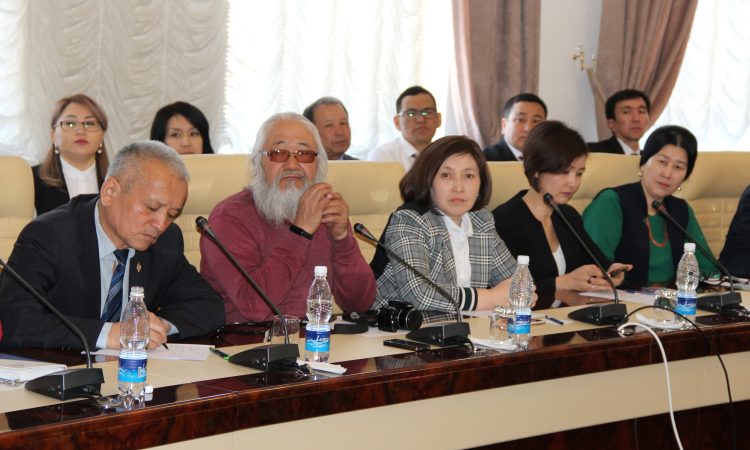On April 2, 2019, the Chairwomen of the Supreme Court of the Kyrgyz Republic Gulbara Kaliyeva met with the editors and leading journalists of the local media under the framework of the USAID-IDLO Trusted Judiciary Program.
“I wanted to discuss ways to interact with the media, to hear your opinions and suggestions,” said Gulbara Kaliyeva.
It was important for journalists to discuss problems related to lawsuits against the media, access to information and to know more about the course of judicial reform
Responsibilities of both sides
Editors were interested in position of the Chairwoman of the Supreme Court on legal proceedings against the media. In particular, they touched upon certain instances when the media were held accountable for the fact that the interlocutor voiced conflicting information. Kaliyeva expressed her personal opinion; a journalist should not be held accountable for “holding a microphone”. https://outlook.office.com/owa/?realm=idlo.int&exsvurl=1&ll-cc=1049&modurl=0.
Journalists also wanted to know the position of the Chairwoman in criminal cases regarding judges, including judges of the Supreme Court of the Kyrgyz Republic. In this regard, Kaliyeva called for the presumption of innocence to be respected.
Court decisions should be published
Journalists raised the issue of access to judicial information, in particular, the lack of court decisions on high-profile cases on the website www.act.sot.kg. Currently, there are over 166 thousand cases, almost 230 thousand judicial acts are published on the site.
New technologies in the judicial system
Questions were raised on the introduction of digital technology. According to Kaliyeva, the system of audio and video fixations, automated distribution of cases, and the publication of court decisions is being actively implemented today.
“Certain mechanisms aimed at reducing corruption are being introduced, perhaps we say little about it,” said Kaliyeva.
Kaliyeva said she would welcome analytics, objectivity and balance in journalistic materials and assured that the Supreme Court, in turn, will strive for transparency.




